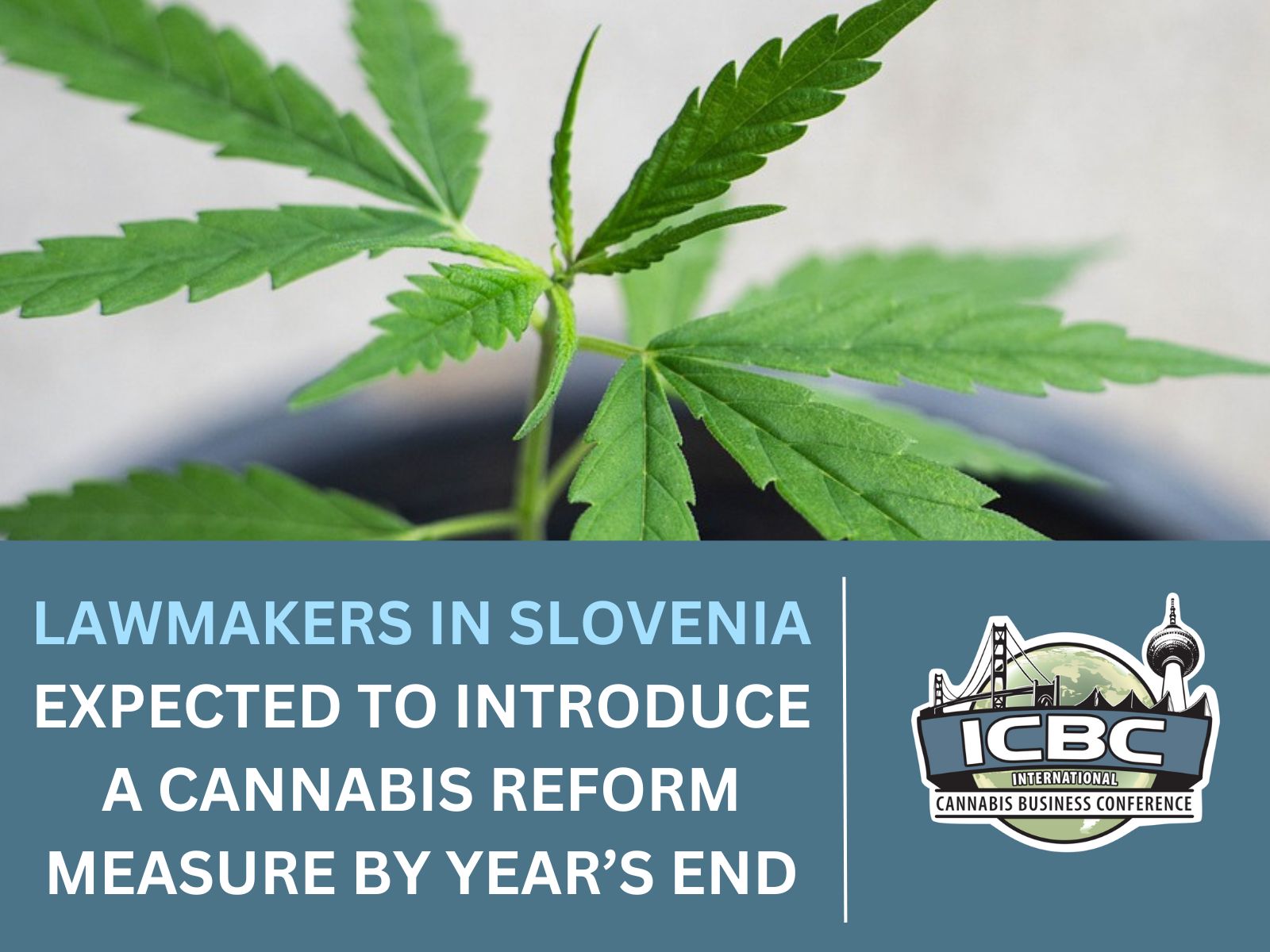
Cannabis Referendums In Slovenia Deserve A Serious Discussion

Cannabis Referendums In Slovenia Deserve A Serious Discussion
Slovenia’s voters will decide on two consulting referendum measures on June 9th pertaining to cannabis policy modernization proposals. The referendum questions were approved for voter referral by Slovenia’s National Assembly in April. Neither measure is binding, however, successful votes for either will help further build upon increasing momentum for Slovenian cannabis reform.
One of the consulting referendum measures involves modernizing Slovenia’s medical cannabis policies. Limited medical cannabis commerce and use are already permitted in Slovenia, however, domestic production is not. Patient advocates are seeking to expand the nation’s medical cannabis program to boost domestic production and safe access, increase product variety selection, improve research policies, and expand the list of Slovenia’s qualifying conditions.
The second consulting referendum measure asks voters about the “cultivation and possession of cannabis for limited personal use” by adults. Personal cultivation, possession, and use by adults are already legal in Malta, Luxembourg, and Germany. Courts in other European countries have also issued rulings that provide similar personal cannabis consumer protections.
Cannabis policy modernization proposals in Slovenia are important topics worthy of constructive public policy conversations. Unfortunately, cannabis opponents in Slovenia seem to prefer using delay tactics and spreading incomplete/misleading information.
An example can be found in a recent article published by Slovenia’s National Institute of Public Health in which the entity expresses opposition to cannabis use and reform in general, but does not specifically call out the upcoming referendum votes. Still, the aim of the article is glaringly obvious.
The Institute’s opposition article largely relies on anti-cannabis talking points that have been recycled for decades and completely disregards very important facts and realities, which makes the Institute’s position come across as disingenuous and unauthentic. The article clearly comes across as more of a political document than it does serving as an objective analysis.
The authors of the article begin by oversimplifying the state of Slovenia’s medical cannabis program and disregarding the ineffectiveness of current medical cannabis policies in Slovenia. The article’s authors are presumably mischaracterizing Slovenia’s current medical cannabis policies to distract and/or confuse the nation’s voters, which is a common cannabis opponent tactic deployed all over the globe.
Yes, technically Slovenia currently permits limited medical cannabis use. However, domestic medical cannabis production is currently limited at best in Slovenia, successfully obtaining effective and regulated medical cannabis products is hard for many patients, and a vast majority of the nation’s suffering citizens do not qualify for legal medical cannabis access under the current policies.
Medical cannabis advocates in Slovenia are seeking to implement medical cannabis policies, rules, and regulations similar to what is already in place in many other parts of the European Union. If other EU member nations can successfully expand their domestic medical cannabis programs without significant issues, so can Slovenia.
The Institute’s article places a heavy emphasis on the harms of adolescent use despite the fact that neither of the referendum measures proposes any changes to Slovenia’s cannabis policies that pertain to adolescent use or furnishing cannabis to minors. The ‘what about the children’ talking point is as old as cannabis prohibition itself, and is nothing more than a scare tactic.
Malta, Luxembourg, and Germany now permit adults to cultivate, possess, and consume cannabis in addition to legalized medical use, and there are no reported major issues in those nations pertaining to youth consumption due to the adult-use policy changes.
The same is true for other scare tactic talking points that the Institute incorporated in its article, such as “passive cannabis use” (public use around others) and driving under the influence. Neither referendum measure proposes changes to Slovenia’s public cannabis use or driving under the influence laws. Both would remain prohibited.
A major macro-level reality that the Institute completely disregards in its positions is that there is no proof that cannabis prohibition lowers cannabis consumption rates. Adults are consuming cannabis in Slovenia every day, just as they have done for many years. The Institute would be well served to acknowledge that reality and advocate for regulation and education instead of continuing to metaphorically stick their heads in the sand and pretend that prohibition works.
Leaders in Malta, Luxembourg, and Germany have taken the position that it is better for public health outcomes when cannabis consumers use home-grown and/or regulated cannabis products versus consuming cannabis products that are sourced from criminal enterprises. Leaders in those nations have also taken the position that it is better to stop wasting precious public resources to enforce failed prohibition policies and instead use those same resources to boost fact-based education and other public programs.
It’s unfortunate that in 2024 cannabis opponents would still rather spread incomplete/misinformation to try to maintain the failed status quo rather than have a constructive public conversation about a more sensible, modern approach to cannabis policies.
With that being said, it is up to cannabis advocates in Slovenia to educate themselves about the true facts regarding cannabis, to tell everyone that they know that the consulting referendum votes will be held on June 9th, and inform them about the objective benefits of modernizing Slovenia’s cannabis policies.
Slovenia does not need to reinvent the wheel. Rather, the Central European nation needs to look to some of its continental peers for policy measures that are already succeeding, such as the policies found in Malta, Luxembourg, and Germany. Cannabis opponents in Slovenia largely benefitted for many years from a lack of successful examples from other EU nations. Those days are now gone, and just as modernized cannabis policies are succeeding in other parts of the EU, the same will prove to be true in Slovenia once lawmakers get the country on the right side of history.
Share article


Share article
Join Our Awesome Community
Join Our Awesome Community
Join Our Awesome
Community
Get all the latest industry news
delivered to your inbox







